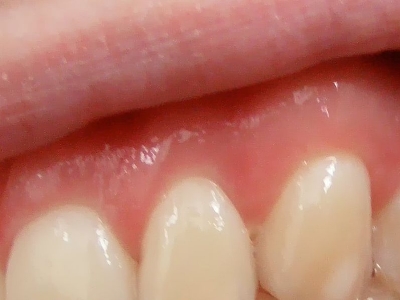What is Periodontitis?

Periodontitis is a serious gum infection that damages the soft tissue. If left untreated, this can destroy the bone that supports your teeth. It can also cause teeth to loosen or lead to tooth loss. This condition is common and highly preventable through proper oral hygiene.
What are the Stages of Periodontitis?
- Inflammation or gingivitis. Periodontitis begins with inflammation in the gums known as gingivitis. The first sign of gingivitis is bleeding gums when you brush or floss your teeth and discoloration of the teeth.
- Early periodontal disease. As periodontitis progresses, your gums recede from your teeth and small pockets form between them. As your immune system fights the infection, your gum tissue recedes. You will likely experience bleeding during brushing and flossing.
- Moderate periodontal disease. Periodontal disease that progresses to moderate can cause bleeding and pain around the teeth and gum recession. Your teeth will begin to lose bone support and become loose which may lead to an inflammatory response throughout your body.
- Advanced periodontal disease. Your teeth begin to slide out of place when the connective tissue that holds them in place deteriorates in advanced disease. The gums, bones, and other tissue that support your teeth are destroyed. You may experience severe mouth pain, bad breath, and a foul taste in your mouth if you have advanced periodontitis.

What are the Symptoms of Periodontitis?
- Gums that bleed when you brush your teeth or floss
- Bad breath and receding gums
- Loose teeth or changes in the position of your teeth
- Red, swollen, and tender gums
- Pain when chewing
- Foul taste in your mouth
- Plaque build-up or tartar on your teeth
What Causes Periodontitis?
- Plaque forms on your teeth when starches and sugars in food interact with bacteria normally found in your mouth.
- Chronic inflammation of the gums can lead to periodontitis, causing pockets of plaque, tartar, and bacteria to form between your gums and teeth. In time, these pockets become deeper, filling with more bacteria.
- Plaque can harden under your gumline into tartar if it stays on your teeth. The bacteria in tartar make it more difficult to remove.
- Plaque can cause gingivitis, the mildest form of gum disease. There is inflammation and irritation of your gums around the base of your teeth when you have gingivitis.

Risk Factors
- Gingivitis
- Poor oral health habits
- Conditions that cause decreased immunity
- Certain diseases, such as diabetes, rheumatoid arthritis, and Crohn’s disease
- Smoking or chewing tobacco
- Recreational drug use
- Smoking marijuana or vaping
- Hormonal changes, such as those related to pregnancy or menopause
- Obesity and genetics
- Vitamin C deficiency
Treatment
Treatment for Periodontitis involves either surgical or non-surgical procedures. The treatment depends on the severity of the condition. Some cases also requires antibiotic treatment such as Doxycycline.
Doxycycline is used as a prescription medicine to treat advanced gum diseases. It inhibits the growth of disease-causing bacteria. Doxycycline prevents the activity of collagenase in the cell walls of the bacteria. Buy Doxycycline here to prevent the bacteria from multiplying and spreading to other parts of the tissue.



